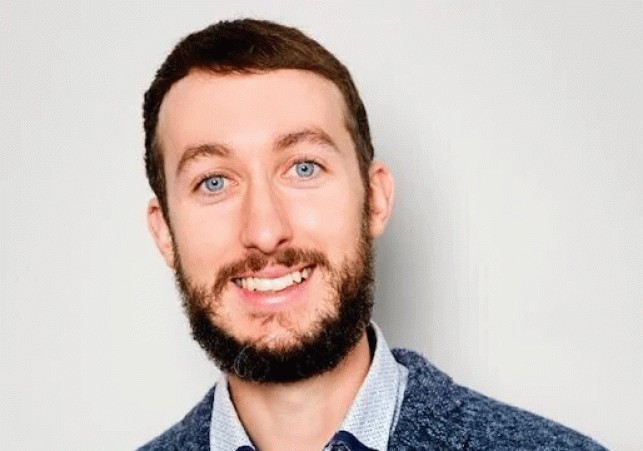Meet the CEO who is putting in overtime to shorten your workweek


Joe O'Connor is trying to persuade your boss—and everyone's boss—to cut the workweek down to 32 hours.
As the CEO of the organisation 4 Day Week Global, O'Connor leads six-month boot camps that have helped 170 companies with 10,000 employees embrace more flexible work schedules around the world. Employers in the United States, Ireland, Australia, and Canada, as well as New Zealand, have joined the nonprofit. According to O'Connor, 70 organisations in the UK with over 3,300 employees will begin a pilot programme this month that will include training, mentorship, data gathering, and networking.
He's taking advantage of a turning point in the workplace, where the future of when and how people work is up for grabs. Working from home for the previous two years has taught workers and supervisors that many professions don't require 40 weekly hours to complete. However, the relationship between employees and employers is still in play, with some high-profile CEOs, such as Elon Musk, demanding that workers return to the office, and others, such as Thomas Gottstein, CEO of Credit Suisse Group AG, admitting that his company will never hire full-time in-office employees. O'Connor is utilising this window of opportunity to offer organisations a clear route forward.
However, not for himself. If O'Connor preaches the benefits of working less hours, his personal schedule is far from light. A media interview at 6:15 a.m. kicked off a recent work day. Other days culminate with online information sessions at 9 p.m. with executives considering a pilot programme in Australia and New Zealand, which 4 Day Week Global hopes to start in August.
He joked, "We chuckle about being acolytes of shorter work time who do conferences in strange time zones in the middle of the night.
"Changing norms
O'Connor's meteoric climb is improbable. He isn't a seasoned consultant who mingles with CEOs or a multibillionaire who has had a revelation. The 33-year-old Irishman spends most of his time at his computer in the living room corner of the one-bedroom apartment he shares with his fiancée, Grace, and their two cocker spaniels, Ned and Lady, in Astoria, Queens.
O'Connor, a former director of campaigns for Ireland's largest public-sector trade union, arrived in the United States nine months ago after getting his visa through Cornell University's Worker Institute, where he is also a visiting scholar researching work-time reduction. While in the United States, though, he had much bigger plans.
"I didn't realise it until late in his stay here that he had come here to organise a US pilot and expected me to run the research for it," said Juliet Schor, a Boston College economist and sociologist who is spearheading 4 Day's global research efforts and gave a spring TED Talk on the larger case for a four-day work week.
Aside from the difficulty of changing a deeply set societal norm, O'Connor also has a branding issue: the term "four-day week" is a misnomer. It's a metaphor for adequately decreased hours—typically 32 per week—and flexibility, according to him and others. Some parents in 4 Day's programmes, for example, choose five six-hour days per week, but some developers prefer three eleven-hour days.
"We work with a number of organisations that reduce gradually," O'Connor added. "Some people save an hour per year."
According to Schor, most firms that accept shorter schedules benefit from lower turnover, lower health-care costs, fewer blunders, and higher-quality applicants. According to her, stress tends to decrease as job satisfaction rises and productivity remains consistent.
Accidental evangelist
Inadvertently, O'Connor became a spokesman for reduced workweeks. While he was working with the union in Ireland, the government implemented a strategy that increased many workers' weekly hours from 35 to 37 in order to prevent wage cuts. O'Connor was irritated by this. He issued a poll to union members, and the responses altered his life forever: Hundreds of workers, usually mothers, left comments describing what happened when they took the common Irish parent path of deliberately reducing their hours and wages for family reasons, such as working 70% time for 70% pay.
"Hundreds of employees told us that their expectations were the same, their responsibilities were the same, and their productivity was the same, but their wages were lower." The poll revealed two findings that have since become his guiding principles: Workers usually complete tasks in the time allocated, and work hours hide a large-scale gender disparity. There appeared a man on a mission.
In 2018, O'Connor organised the Future of Working Time conference in Ireland. "There was a lot of backlash, both externally and internally," O'Connor said, fearing that "this would be regarded as lazy public servants searching for more time off."
The following year, he founded 4-Day Week Ireland (with the tagline "better for everyone"), bringing together academics, businesses, and the National Women's Council of Ireland as participants. Shorter workweeks were promoted as a moderate idea that would suit the requirements of employees, employers, and society, and in April, the traditional 35-hour workweek was resumed. He also teamed up with the budding 4 Day Week Global, which was created by Andrew Barnes and Charlotte Lockhart, a semiretired couple. After Barnes' trust company, New Zealand-based Perpetual Guardian, prospered on a shortened schedule, they self-funded the group.
The Covid-19 outbreak quickly upended a century's worth of working conventions. Barnes and Lockhart hired O'Connor as its CEO, and he travelled to America to run the quiet non-profit in September 2021.
“It’s inevitable that for this to succeed, it would have to be driven by the corporate world and private business and private industry,” he said.
Talking the talk
O'Connor has rapidly learned CEO lingo, conversing fluently about recruitment, retention, and competitive advantage.
"He just tells it like it is," said Adam Husney, CEO of Healthwise, a consumer-health information firm with 250 employees that switched to a four-day workweek this year. "He's not attempting to persuade you; he's simply sharing the information."
According to Husney, Healthwise has witnessed lower burnout and improved satisfaction with no drop in production, and a devastating attrition problem has vanished entirely. "We have a lot of work ahead of us, and we're concerned that we'll fall behind, but for the time being, everything is going swimmingly."
4 Day Week Global currently has a dizzying selection of pilot programmes available all around the world. In July, seventeen enterprises in Ireland with 600 employees will complete 4 Day Week Global's first pilot, according to O'Connor. A US test involving 40 companies and 3,200 employees is nearly complete; an Australian and New Zealand pilot will begin in August, and a new US and Canada pilot will begin in October, followed by a European pilot in February. Starting next year, new cohorts will be launched quarterly, with a 2-3 month planning, pilot design, and research baseline assessment period in between.
Companies are requested to donate between $2,000 and $20,000, depending on their size, to participate in the initiatives.
Meanwhile, O'Connor is learning the art of mingling with a more diverse group, and his old alliance-building talents are coming in handy. He also hopes to work less in the not-too-distant future. He would rather not disclose his working hours for the time being.
Is he employed five days a week?
He explained, "You know, we're trying to change the world here."
Is it really six days?
"We're a small, growing company with exponential demand," O'Connor explained. "Like many other CEOs..."

